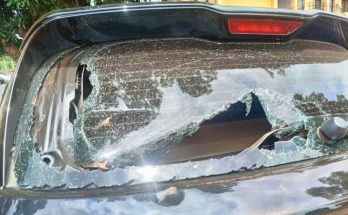—Group okays 18% for oil-producing states
By Bode Olagoke and Emeka Nze, Abuja
Tempers flared amongst delegates at the National Conference yesterday after the Elders Committee recommended 18 per cent derivation for the oil-producing states in the South-south and 5 per cent for the North.
The committee, which was co-headed by Prof. Ibrahim Gambari and Gen. Ike Nwachukwu, announced the recommendation after days of deliberations over the contentious issue of resource control by zonal leaders.
Presenting the outcome of the meeting to the plenary, Gambari, who spoke on behalf of the zonal leaders, said the 5 per cent monthly allocation for the North-east, North-west and North-central for rehabilitation would be as a result of the militant activities of the Boko Haram sect.
Acccording to him, the group was only motivated by one thing, which was just to provide an avenue to reach consensus rather than voting.
“We do not believe that voting will really move us forward,” he said.
He told the plenary that zonal leaders agreed: “One pole began with the position that was embodied in the recommendations of the Committee on Devolution of Power all the way from 13 percent to 15 percent, then 17 percent and not less than 18 percent. Another position shifted from the high figure of 100 percent and 50 percent to 21.5 percent and 20 percent, and finally to not less than 18 percent to be reviewed every ten years.”
Gambari explained: “Therefore, this group adopted a position and to recommend to the plenary not less than 18 percent as the derivation formula. But the group did not end there. As a package, we proposed two recommendations: one, for 5 percent revenue allocation to be made to the solid minerals development. We know we have been over-relying on oil and the time has come to pay attention to other resources throughout the country.
“The second and perhaps much more urgent is that we have recommended a new fund to be established which will call funds for stabilisation, rehabilitation and reconstruction, 5 percent of revenue allocation, principally for the North-east, North-west and the North-central.”
Gambari said if the recommendations get endorsed, it would be reflected in the Revenue Allocation Act.
He said: “We have also recommended that what is happening now is not the problem of the North-east but that of Nigeria. We have also recommended broadly a safeguard and mechanism to ensure that monies go to those who need them most and to also enhance production of mineral resources that our country is endowed with.”
The announcement made by Gambari sparked off protests among the delegates who did not understand the third leg of their recommendation that bordered on stabilisation and rehabilitation fund.
South-west and South-east delegates rejected the recommendation, saying the move could not be adopted because of its lopsided nature.
Reacting to the development, a delegate from the South-west, Pastor Tunde Bakare, who was not happy with the resolutions, said what the consensus was saying was: “We should all go and do our ‘insurgency’ to get what we want.”
Also reacting, a South-east delegate and former Senate President, Adolphus Wabara, disagreed with the 5 per cent allocation to the North-east and others, adding that if such recommendations were to be accepted it must be for all the regions.
A delegate, Dr. Femi Obayori from the South-west told Blueprint that the recommendation of the Elders Committee was strange and outside their mandate.
Obayori, who was visibly angry with the development, stated that there was a technical attempt to deprive the South-south people of “their God-given resources” as what the Gambari group did was to give the people with one hand and take with the other.
He differentiated the two scenarios in the Niger Delta and the North, saying devastation in the oil-producing areas was as a result of the activities of the oil companies and the neglect of the governments while insurgency in the North was self-inflicted.
According to him, the North did not deserve the 5 percent and if the decision was allowed to stand, any group could desert their place and pull down the area and ask government to re-develop the area for them.
Describing the insurgency in the area as “transient,” he argued: “There are other ways you can always address it. It should not be the basis for you to begin to give largesse to the people. It is illogical, it is retrogressive. How did they arrive at that? What we have been served for lunch this afternoon is not worth consensus.”
He stated that what is expected of the consensus group was a clear-cut percentage to the oil-producing states, otherwise it would be unacceptable.
A South-south delegate who did not want his name in print, however, was reluctant to comment but simply said, “The decision will not stand.”
The conference came to an abrupt end when the conference leadership noticed dissatisfaction among many delegates.



